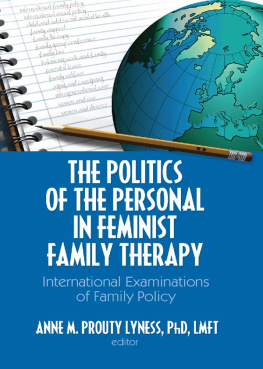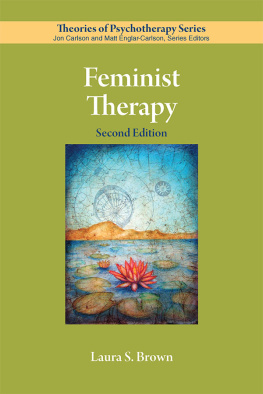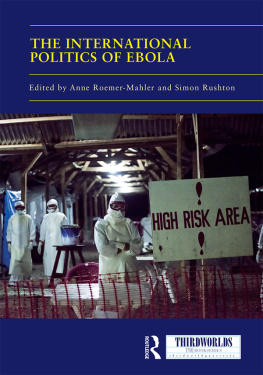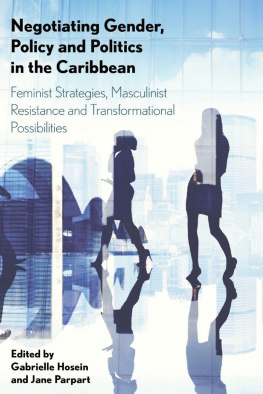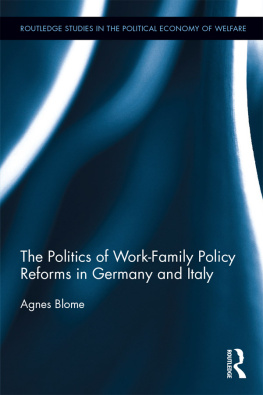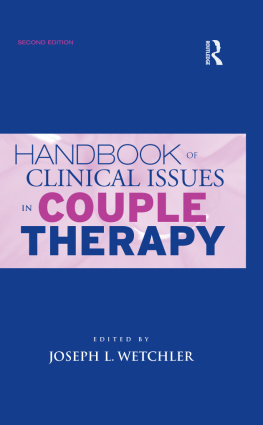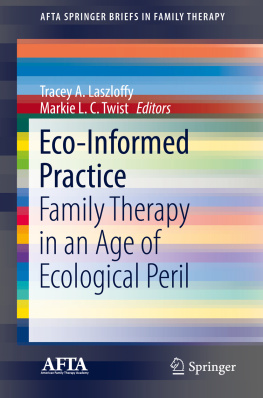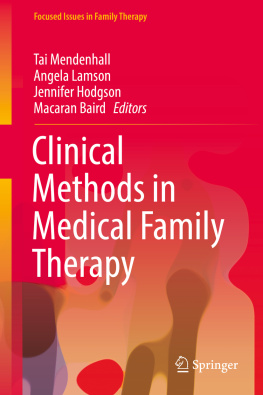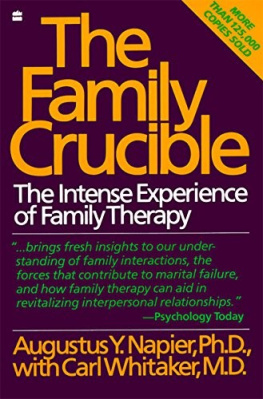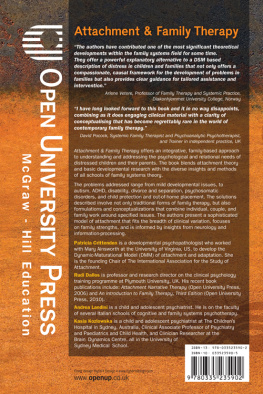The Politics of the Personal in Feminist Family Therapy: International Examinations of Family Policy
The Politics of the Personal in Feminist Family Therapy: International Examinations of Family Policy, edited by Anne M. Prouty Lyness, PhD, LMFT (Vol. 17, No. 3/4, 2005). Provides an interdisciplinary look at family public and social policies and the impact they have on families around the globeall from a feminist perspective.
Feminist Perspectives in Medical Family Therapy, edited by Anne M. Prouty Lyness, PhD, LMFT (Vol. 15, No. 2/3, 2003). Explores the groundbreaking collaboration of therapy and medicine to form a biopsychosocial approach to health care, especially for women and families.
Integrating Gender and Culture in Parenting, edited by Toni Schindler Zimmerman, PhD (Vol. 14, No. 3/4, 2002). Presents specific strategies for parents to use to help children navigate gender terrain and resist stereotyping.
Balancing Family and Work: Special Considerations in Feminist Therapy, edited by Toni Schindler Zimmerman, PhD (Vol.13, No. 2/3, 2001). A must for many classrooms. Relevant for family studies courses as well as clinical courses. This book covers a lot of ground. It's personal, political, conceptual, and clinical. It tells personal stories, discusses these people's struggles, and reports important research An excellent introduction to the issues. (Volker Thomas, PhD, Associate Professor and Director, Marriage and Family Therapy Program, Purdue University, West Lafayette, IN)
Integrating Gender and Culture in Family Therapy Training, edited by Toni Schindler Zimmerman, PhD (Vol. 12, No. 2/3 and 4, 2001). Engaging. The predominant theme is infusion, not just inclusion. In a time when trainers, supervisors, trainees, supervisees, and clients are increasingly likely to come from diverse cultural backgrounds, this book will serve to keep us engaged in dialogue that addresses our own sexism, racism, and homophobia, and broadens our own cultural and gender lenses. (Janie Long, PhD, MFT Faculty, Purdue University, Indiana)
Feminism, Community, and Communication, edited by Mary W. Olson, PhD, LICSW (Vol. 11, No. 4, 2000). This important book rethinks therapy, research, teaching, and community work with a renewed emphasis on collaboration, intersubjectivity, and the process of communications as a world-making and identity-making activity. The issues of gender, culture, religion, race, and class figure prominently in this valuable book.
Transformations of Gender and Race: Family and Developmental Perspectives, edited by Rhea V. Almeida, LCSW, DVS (Vol. 10, No. 1, 1998/99). Offers superb contemporary thinking in cultural studies, post-colonial theory, gender theory, queer theory, and clinical and research work with numerous populations who have been overlooked and undertheorized.
Reflections on Feminist Family Therapy Training, edited by Kathy Weingarten, PhD, and Michele Bograd, PhD (Vol. 8, No. 2, 1996). Those new to a feminist perspective on family therapy will find their eyes widened; experienced trainers will become immersed in the subjective dialogue. (Kathleen McGuire, PhD, Center for the Study of Women in Society, University of Oregon)
Cultural Resistance: Challenging Beliefs About Men, Women, and Therapy, edited by Kathy Weingarten, PhD (Vol. 7, No. 1/2, 1995). It explores the possibilities for therapy to act in resistance to culturally constructed and dominant narratives that constrain therapists and our clients. (Australian New Zealand Journal of Family Therapy)
Ethical Issues in Feminist Family Therapy, edited by Maryhelen Snyder, PhD (Vol. 6, No. 3, 1995). These deeply felt and tightly reasoned chapters illuminate therapist positions that are more likely to foster just relations. (Kathy Weingarten, PhD, Co-Director, Program in Narrative Therapies, Family Institute of Cambridge, MA)
Expansions of Feminist Family Theory Through Diversity, edited by Rhea V. Almeida, LCSW, DVS (Vol. 5, No. 3/4, 1994). Represents an important turning point in the history of family therapy. The authors explicitly address fundamental power differentialsbased on race, gender, social class, and sexual orientationthat organize life for all families in America. (Robert-Jay Green, PhD, Professor and Coordinator of Family/Child Psychology Training, California School of Professional Psychology, Berkeley)
Feminism and Addiction, edited by Claudia Bepko, MSW (Vol. 3, No. 3/4, 1992). Provides valuable clinical information for therapists working with alcohol- and drug-addicted women. It describes methods of therapeutic training and intervention based on an integration of feminist theory and other major theories that expand the boundaries of treatment for addicted women. (Contemporary Psychology)
Feminist Approaches for Men in Family Therapy, edited by Michele Bograd, PhD (Vol. 2, No. 3/4, 1991). A new offering that marriage and family therapists will find to be a valuable addition and resource. (Journal of Family Psychotherapy)

